PRODUCT LIST
Uninterruptible Power Supplies in Banking and Finance Sectors
WP0013_en-us
Document Author:
Delta Power Solutions
Product covered:
UPS Solutions
Many companies are unprepared for business disruptions caused by power blackouts and are often unaware of the actual costs and impact that they can have on their operations. While the majority of power failures from national grids last only a few hours, some blackouts can last days or even weeks. This completely shuts down production at companies and critical infrastructures such as telecommunication networks, computing services, banking and financial services, water supplies and hospitals.
Need for Uninterruptible Power in Banking and Finance Sectors
The pivotal role that banking and the financial sectors plays in the economic growth and stability, both at national and individual level, requires continuous and reliable services. Based on a survey made by US Department of Energy, ‘brokerage operation’ and ‘credit card operation’ are victims with highest average costs led by power outages. The finance industry requires enormous computing power to trade at high speed and frequency, to analyze and react to markets, and to provide customers with constant access to services and information.
In the modern society, banking and financial services are not only in the traditional way like bank branches or ATMs. As the intensive application of internet, call center banking, on-line banking and mobile banking are also popular and well accepted by customers. With more and more social media, like facebook, twitter, Linked-in, are prevailing in the cyber space, social media fund transfers are also set to grow nowadays.
However, IT-based financial services highly rely on solid infrastructure as the operation backbone. Each day, a staggering amount of new data must be generated, processed, acted upon, and stored. In a field notorious for high customer turnover, banks must provide optimal customer experience with minimal downtime in order to maximize retention.
Data Security in Cloud-based Applications

Consumers in this sector are especially sensitive to the perceived security of their data and the competence of institutions in safeguarding their personal information, so the minimization of downtime due to technical issues is doubly important.
While the ease of use in interacting with a cloud-based data center can seem effortless and almost magical for the end user; businesses who provide the experience know that cloud solutions require significant investments in hardware and operations in order to remain secure, reliable, and accessible at all times. The modern digital equipment employs microprocessors that run at frequencies of up to several gigahertz, carrying out millions of operations a second.
A disturbance to power delivery of only a few milliseconds can disrupt thousands of basic operations, potentially leading to malfunctions, corruption and data loss; and even hardware damage as is apparent from the IT ecosystem of banking, financial services and insurance (BFSI) sector.
UPS Protects the Critical Operations in Banking and Finance
UPS systems vary widely in size and function, from the smallest protecting a single computer or ATM to vast systems designed to protect large data centers. Some equipment can tolerate slight fluctuations, but significant deviation from this standard is often enough to cause damage to the sensitive components present in modern data systems in finance and banking companies. Finance segment needs to remain at the cutting edge of technology and business or risk rapid outpacing by their competitors.

There are three typical applications for UPS to be used in banking and finance sectors to protect the mission critical load –
-
Powering ATMs

Banking and finance companies maintain smaller systems, many of which require individual power protection. An automated teller machine (ATM) is one of the typical systems which need an online UPS to protect from possible anomalies in its power supply.
ATMs can be located everywhere – bank branches, office buildings, hotels, residential areas, convenience stores and even more. There are many power challenges in ATMs. The cost challenges include the average daily power consumed by ATMs 1~3kW including auxiliary equipment, regular power outages or alternate means of power. The infrastructure challenges in ATMs lead to unstable utility power that in turn leads to communications line interruption; switch server goes down, and frozen screens lead to loss of transactions and serious customer dissatisfaction. -
Powering Branch Automation

Branch automation in banks connects the customer service desk and IT equipment in a bank office with the bank's customer records in the back office. Not only in banks, branch operations in insurance institutes and securities also need reliable backup power protection to avoid cost of power failure.
There are multifarious power challenges in branch automation. Some infrastructure challenges are space constraints for alternate sources of power; servicing power equipment in remote locations and poorly conditioned environments. -
Powering Data Centers

The data centers used by enterprises in BFSI sectors for data storage and processing are vitally important to business operations. The datacenter constitutes the critical load in the daily operations of the organization, and play the role as the backbone of financial data computation, transaction system and records storage. Servers, storages, routers and switches are the key IT equipment in the datacenters. Cost of downtime due to critical load failure is extreme and the average cost per hour of downtime is increasing due to more and more adoptions of automated business operations in BFSI sectors.
Data centers in banking and finance require robust contingency power systems to match the size of their operations in order to retain power for critical operations under adverse conditions. And data centers are extremely energy-consuming due to the computation of big amount of data. Besides, all branches, ATMs and on-line banking are dependent on data centers. Thus, high power efficiency and ultimate availability of UPS system will be the major criteria for CIOs to take into consideration.
The Delta UPS Solution –
Robust Power to Ensure Banking and Finance Business Continuity
The Delta Group, as the industry leader in power management solutions, has complete UPS solutions covering power ratings from 1kVA up to 4000kVA in parallel, from single-phase to three-phase, from standalone to modular type, and from transformer-based to transformer-less UPS. Delta is committed to developing advanced technology to increase the energy efficiency of our products in pursuit of environmental sustainability.
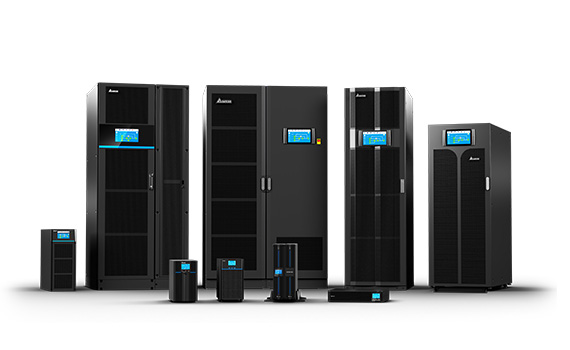
-
Delta Amplon for ATMs
Amplon UPS systems feature double conversion technology and are the perfect power management solution for small to medium enterprises, such as financial institutes, insurance and banking. They offer the power protection solution with the highest space and cost benefits.
In the case of an ATM, a UPS unit effectively serves as an electrical firewall between any potentially damaging fluctuations in power and the vulnerable hardware present in such machines. -
Delta Ultron for Branches Automation
The mid- to large-sized UPS of the award-winning Ultron family by Delta are an ideal choice for banking facilities, combining advanced power solutions with low total cost of ownership. Ultron UPS units are renowned with the technology for their energy efficiency and innovative design, and the flexible customization options of some models enable their configuration to meet a broad range of power needs. -
Delta Modulon for Data Centers
The Modulon family includes DPH and NH Plus series UPS. The DPH series UPS is the modular UPS system designed for ultimate availability, excellent performance and high efficiency ideally suited for small and medium-sized datacenters. It features high AC-AC efficiency up to 96%, hot-swappable modular structure, and N+X redundancy. The Modulon series UPS deliver remarkably low total cost of ownership in terms of both capital and operation expenses.
Our technical acumen and engineering capabilities has been well recognized and appreciated by industry leaders in banking and finance segment -
-
Mphasis chose Delta for ATM real-time monitoring and energy-saving solutions

Mphasis is one of the leaders in retail finance and outsourced ATMs. They have deployed over 8000 ATMs across six states of India with plans to grow this network to 25,000 ATMs by 2015-16.
Twenty-six public sector banks in India trust Mphasis for deploying and managing their ATMs. Power loss for Mphasis leads to reduced number of transactions and reduced revenue. Delta’s Amplon E Series 1-3kVA were proposed for Mphasis ATMs. 1000 units of Amplon E series were installed with internal chargers. All ATM loads with ATM machine and lights are powered by Delta UPS to client’s delight and satisfaction.
For more details, please click here. -
Delta Electronics Implements Solution for Sberbank in Russia
Delta Electronics announced the successful implementation of its solution for a branch of OJSC Sberbank of Russia in Anapa. The regional integrator, Citylink-Yug, together with the official distributor of Delta Electronics products, Tempesto, installed the modular Delta NH Plus series UPS 120 kVA and a parallel N+1 reservation system for guaranteed uninterrupted power supply of the bank's equipment.
As part of the technical refurbishment of Sberbank’s office in Anapa, Krasnodar region, plans were made to increase the usable area of the client service zones, to install self-service terminals, and to introduce an electronic queuing system. The mass conversion to the electronic client services made the need for uninterrupted power supply more critical. An uninterrupted power supply is also necessary for the expensive new equipment, which enables a single office of Sberbank to manage all of its ATMs in town.
For more details, please click here.
Reference:
- Energy Risks - the dangers of power cuts and blackouts- Expert Risk Article from AGCS, Allianz Global Corporate and Specialty
http://www.agcs.allianz.com/insights/expert-risk-articles/energy-risks/ - 2014 World Energy Issues Monitor from World Energy Council
- BFSI - Report of working Group on Electronic Banking











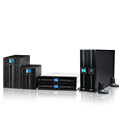
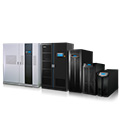
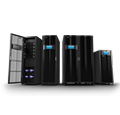

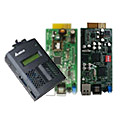


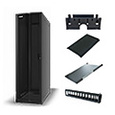



















.gif)
